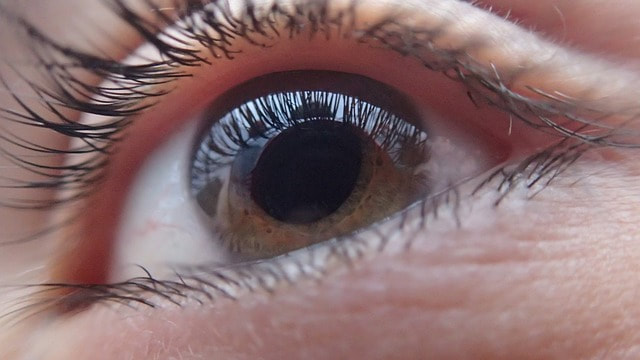Common Age-Related Eye ConditionsIt’s important to not write off all changes to your eyes as an inevitable part of aging. Recognizing symptoms of age-related eye conditions might help you seek answers, help, and treatment early and protect your vision. Three common age-related eye conditions include glaucoma, cataracts, and age-related macular degeneration (AMD). We’ll look at each of these in detail below. GlaucomaGlaucoma is a serious eye disease that is typically caused by increased pressure in the eye. Normally, our eyes produce intraocular fluid, which flows through our eyes and out the eye’s drainage system. The rate that the fluid is secreted should balance the rate it drains. But in people with glaucoma, the eye’s drainage system can become blocked, and fluid can build up. When fluid builds, it increases pressure in eyes, which can damage the optic nerve. People at greater risk for developing glaucoma are those who:
Other risk factors for glaucoma include:
There are different types of glaucoma, but the most common type, called primary open-angle glaucoma, usually does not cause symptoms early on. As the condition progresses, blind spots in side vision may begin to develop and progress. According to the American Academy of Ophthalmology, in people over 60 years old, glaucoma is the leading cause of blindness. But early treatment may prevent blindness. Since early symptoms may not be present, it’s essential to see an ophthalmologist regularly to have eye exams. Early treatment can prevent further damage from developing. Treatment may include medication and surgical procedures to promote fluid drainage and decrease eye pressures. To learn more about glaucoma, please visit our Glaucoma resources on our website: CataractsCataracts occur when the lens of your eye becomes cloudy. The lens may become cloudy due to changes in the lens tissue caused by injury or, more commonly, aging. As we age, proteins may clump and begin to cloud lens in the eyes. Over time, more of the lens becomes clouded, which affects vision. Although cataracts can start to develop in middle age, they usually do not affect vision until they become larger, which may not occur until after age 60. According to the Mayo Clinic, other risk factors for cataracts than aging include smoking, diabetes, and prolonged exposure to UV rays. Symptoms of cataracts include cloudy vision, poor night vision, and double vision. Cataracts do not have to be removed if they are not causing any symptoms. But if symptoms are present, surgery may be an option. Surgery involves removing the cloudy lens and replacing it with an artificial lens. To learn more about cataracts, please visit our Cataract resources on our website: Age-Related Macular Degeneration (AMD)Age-related macular degeneration (AMD) involves the breakdown or deterioration of a part of the retina called the macula. The macula plays a role in processing central vision. Because the macula is small and paper thin, it is susceptible to deterioration. As the macula breaks down, central, sharp vision decreases.
Typically, macular degeneration affects people age 50 and over. According to the National Eye Institute, smoking and having a family history of the disorder also increase your risk. Although macular degeneration may not cause total blindness, it can have a significant effect on your quality of life. It leads to central vision loss, which can affect your ability to drive, read, and perform everyday activities. Macular degeneration is divided into two subtypes, including dry and wet. Dry macular degeneration is the most common form of the disease. It involves a slow thinning of the macula. Dry Macular Degeneration Dry macular degeneration causes small deposits of protein to form on the retina that, at first, do not affect vision. In fact, you may not know you even have them. But your ophthalmologist can spot the deposits during an eye exam. As the condition progresses, the deposits can lead to blind spots in the central vision. Wet Macular Degeneration The second type is wet macular degeneration, which is less common and more severe. In wet macular degeneration, there is an abnormal growth of blood vessels in the back of the eye, which can rupture and lead to vision loss. Regular eye exams can detect macular degeneration early. Current, there are no treatments that can reverse the effects of macular degeneration. It’s vital that it be diagnosed early, which is why we recommend complete eye examinations every 2-4 years starting in your 40s and complete eye examinations every year starting in your 50s. Depending upon the type and stage or severity of macular degeneration, your ophthalmologist may recommend medical and / or injection treatments to slow the progression of AMD and decrease your risk of developing advanced AMD. For some patients with wet AMD, your ophthalmologist may recommend a laser treatment called photocoagulation, which helps to stop leaking of ruptured blood vessels in your eye. To learn more about AMD, please visit our macular degeneration resources on our website: Regular eye exams are important at any age. But they become even more critical as you age and are at an increased risk of certain eye problems. If you have any questions about how to keep your eyes healthy as you age or would like to schedule an appointment with one of our ophthalmologists, please call our office at 508-746-8600. Our medical eye doctors who specialize in the diagnosis of and latest treatments for glaucoma, cataracts, and age-related macular degeneration are here for you:
Stay tuned for our next post, “Protecting Your Vision as You Age,” as we continue with Healthy Aging Month! Comments are closed.
|
EYE HEALTH BLOGCategories
All
Archives
July 2024
|
|
Kadrmas Eye Care New England
55 Commerce Way, Plymouth, MA 02360
14 Tobey Road, Wareham, MA 02571 133 Falmouth Road (Rt 28), Mashpee, MA 02649 |
Phone Number:
1-508-746-8600 Hours: Monday through Friday — 8 AM – 4:30 PM |


 RSS Feed
RSS Feed
